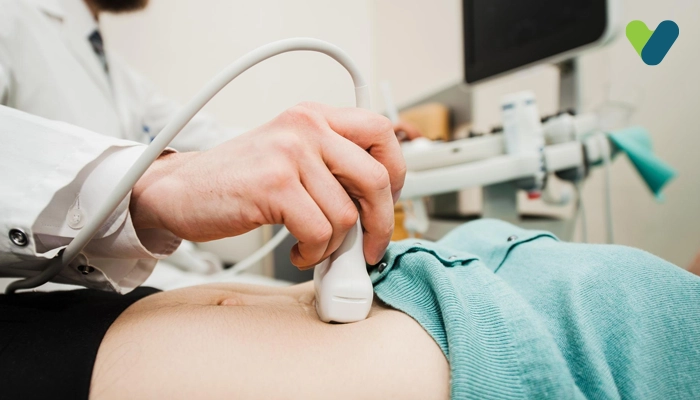Kajol is a college student. She is excellent at academics, sports, and other extra-curricular activities. Whatever task is assigned to her, she does it with excellence. But one unhealthy fact about Kajol is that she loves junk food. She eats junk food almost every day. Due to living in a hostel, there is nobody to take proper care of her. She has been feeling pains in her abdominal areas for the past week, especially near the navel. Sometimes she felt heartburns in and sometimes, she went through indigestion. After a week of suffering, she finally decides to see a doctor. The doctor, after a thorough check-up, prescribed her an ultrasound test of stomach. Hearing it for the first time, she was clueless about what is it.
Are you too hearing about it for the first time? Want to know what exactly is the procedure of the ultrasound test of stomach is? Keep reading the blog post for more information.
What Is an Ultrasound Test of Stomach?
An ultrasound test is done to see the health of some internal organs. It is done to know the size, placement, shape, and blood flow of the organ. It is used to see if there is any disease or problem present in that internal organ. Images are procured of the internal organ and later examined by your doctor.
It is done using a transducer that sends out high-frequency ultrasound waves that the human ears can’t hear. The transducer is placed on the skin so that the ultrasound waves can travel in the body to the organs. When the sound wave hits the organ, it bounces off like an echo and travels back to the transducer. The transducer processes these reflected waves are processed by the transducer, which is then converted into an image by the computer. This image shows the examined organs and tissues.
A gel is put on the transducer and the skin to move smoothly without much friction. This gel is also used to eliminate air that is present between the skin and the transducer. This helps in the best sound conduction for ultrasound tests of stomach.
An ultrasound test of stomach is also known as abdominal ultrasound. It is done to procure real-time images of the structures inside the abdomen like the intestines, liver, stomach, etc. It is done to diagnose anything unhealthy or problematic in your abdominal area.
An ultrasound test of stomach is a non-invasive, radiation-free, and pain-free procedure to get your abdominal health checked. It is an effective way to get results about your stomach problems, if there are any.
Preparation of an Ultrasound Test of Stomach?
Firstly, you need to fast, meaning don’t eat or drink anything for about eight to twelve hours before a session of ultrasound test of stomach. It is done because any kind of food and liquid in your gut can obscure real-time images. For a proper diagnosis, it is essential to get a clear picture of the organs of the abdomen.
Always ask your doctor for any additional way to prepare or whether or not you can drink while fasting.
Purpose of an Ultrasound Test of Stomach
It is done to get real-time images of your abdomen and its organs. This is done to check the overall abdominal health and to diagnose any disease or problem.
This test checks the blood vessels in the abdomen, liver, sleep, pancreas, kidneys, gallbladder, and intestines.
If you have stomach pains and untimely bloating issues, an ultrasound test can help your doctor evaluate this problem accurately. There are a lot of issues that can be effectively diagnosed by abdominal ultrasound, like kidney stones, liver diseases, tumours, and other such conditions.
Potential Risk of Stomach Ultrasound
Generally, there are no risks associated with abdominal ultrasound or the stomach as this procedure doesn’t use radiation. It is safe, pain-free, and non-invasive.
Conclusion
Getting an ultrasound test stomach or abdominal ultrasound is immediately necessary if you are feeling any discomfort in your abdominal area. This is done to procure clear and real-time images of the organs of the abdomens, which will enable your doctor to know the overall health of your abdomen. Eight to twelve hours of fasting is a must before going in for an ultrasound session. Whatever result will come out of the ultrasound session will be checked by your doctor, and a suitable treatment will be given to you if anything is diagnosed in the test.


